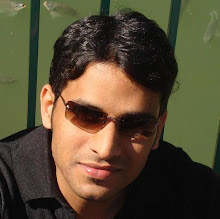 Very few social activists have captured the attention of Indians across the globe as Anna Hazare did during his "fast unto death" over the issue of the Lokpal Bill in New Delhi in April 2011.
Very few social activists have captured the attention of Indians across the globe as Anna Hazare did during his "fast unto death" over the issue of the Lokpal Bill in New Delhi in April 2011. Hazare, a Gandhian by belief, outlook and practice, has become the face of India's fight against corruption. During his fast over the Lokpal Bill, Hazare, a quintessential traditional Indian by looks and mannerism, managed to inspire and mobilize the support of even the ultra-modern Indians - Indians for whom the word "social" only means having a profile on social networking sites.
The "Anna Hazare fast" can be described as the first real "social networking movement" in India. Hazare, a former Army man, began his social activism from Ralegan Siddhi, a village in Ahmednagar district in Maharashtra, where he successfully led a movement against alcoholism and made Ralegan Siddhi a "model village". From a soldier to a social reformer, and a right to information crusader, Anna Hazare's journey of four decades has been unprecedented in terms of a non-violent yet effective campaign of resurrecting a barren village into an 'ideal village' model and empowering the faceless citizen through pioneering work on Right to Information.
Lokpal Bill:
The Lokpal is a body with a chairperson who is or was a Chief Justice of India and eight other members. The Lokpal Bill, an effort to rein in the pervasive corruption in public life, was first floated in the late 60s, but failed to become law despite successive attempts.
Implementation of the Lokpal bill will hopefully reduce corruption in India. The basic idea of the Lokpal is borrowed from the office of the ombudsman in other countries. It provides for filing complaints of corruption against ministers and members of parliament with the ombudsman.
The government's Lokpal Bill has kept the Prime Minister and the judiciary as well as conduct of MPs in Parliament out of the ambit of the anti-corruption watchdog. The PM, however, will come under the purview of Lokpal after he demits office. The bill gives permission to Lokpal to probe any Union minister or officials of Group 'A' and above rank without any sanction.
According to the government's draft, the body will have a chairperson and eight members, including four judicial members - who will be former or sitting judges of Supreme Court or chief justices of the high court. The Lok Ayuktas in the states does not come under the purview of this bill as the Centre cannot intervene in the powers of the state. The Lokpal will have its own prosecution and investigation wing with officers and staff necessary to carry out its functions.


















































































































No comments:
Post a Comment